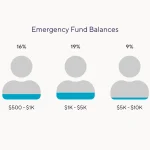
You don’t have to break the bank to study in the UK. Government-funded student loans cover tuition fees, as well as living expenses, such as food and accommodation. Tuition fees are covered by the loan, and the money goes directly to the university. There is another type of student loan that pays for living expenses directly into your bank account. The amount of money you get can depend on how low your family income is and what type of course you’re studying.
Before applying for Student Finance, you should first decide how much you can afford to borrow. You can apply for cash awards or tuition fee waivers, depending on your circumstances. Keeping track of your monthly repayments can make uni life easier and less stressful. Some of the funding is ring-fenced for poorer students, and it’s important to understand your eligibility. Alternatively, you may qualify for means-tested maintenance funding. This is particularly important if you have dependent children.
When applying for student finance, check if you meet the eligibility criteria. If you’re a British citizen or an EU national, you must be a settled resident on the date of application, as the government has no time limit for staying in the UK. Other requirements include a valid bank account and proof of household income. Not updating your details could cost you money, which you can’t afford. If you don’t make updates to your details, you may miss out on funding, end up paying higher interest rates and pay penalty fees.
If you’re not on a full-time income yet, you must still pay your Student Finance loans. They will continue to accrue interest during the repayment period, and you’ll have to file a self-assessment tax return every year. While living abroad doesn’t mean you can completely neglect your loans, you must still make your payments if you’re able to meet the income threshold. Your student loan repayments can affect your ability to get a mortgage.
The government’s student finance scheme also includes financial aid. The government provides grants to help students who need extra funding to pay their tuition fees and other expenses. The amount you’ll receive depends on your personal circumstances and financial need. If you qualify, you’ll receive a Disabled Students’ Allowance, which covers study-related costs that don’t fall under the other student finance options. However, there are regional variations in the application process. You can check your eligibility with your local Student Finance NI office.
You must also budget for other bills that don’t fall under your rent, including insurance, food, toiletries, clothing, travel, and utility bills. You should also include other expenses you may have, such as socialising and going out. Once you’ve set a budget, you’ll be able to calculate the exact amount of money you need for your studies, and where to save your money. The more you know, the better off you’ll be.




